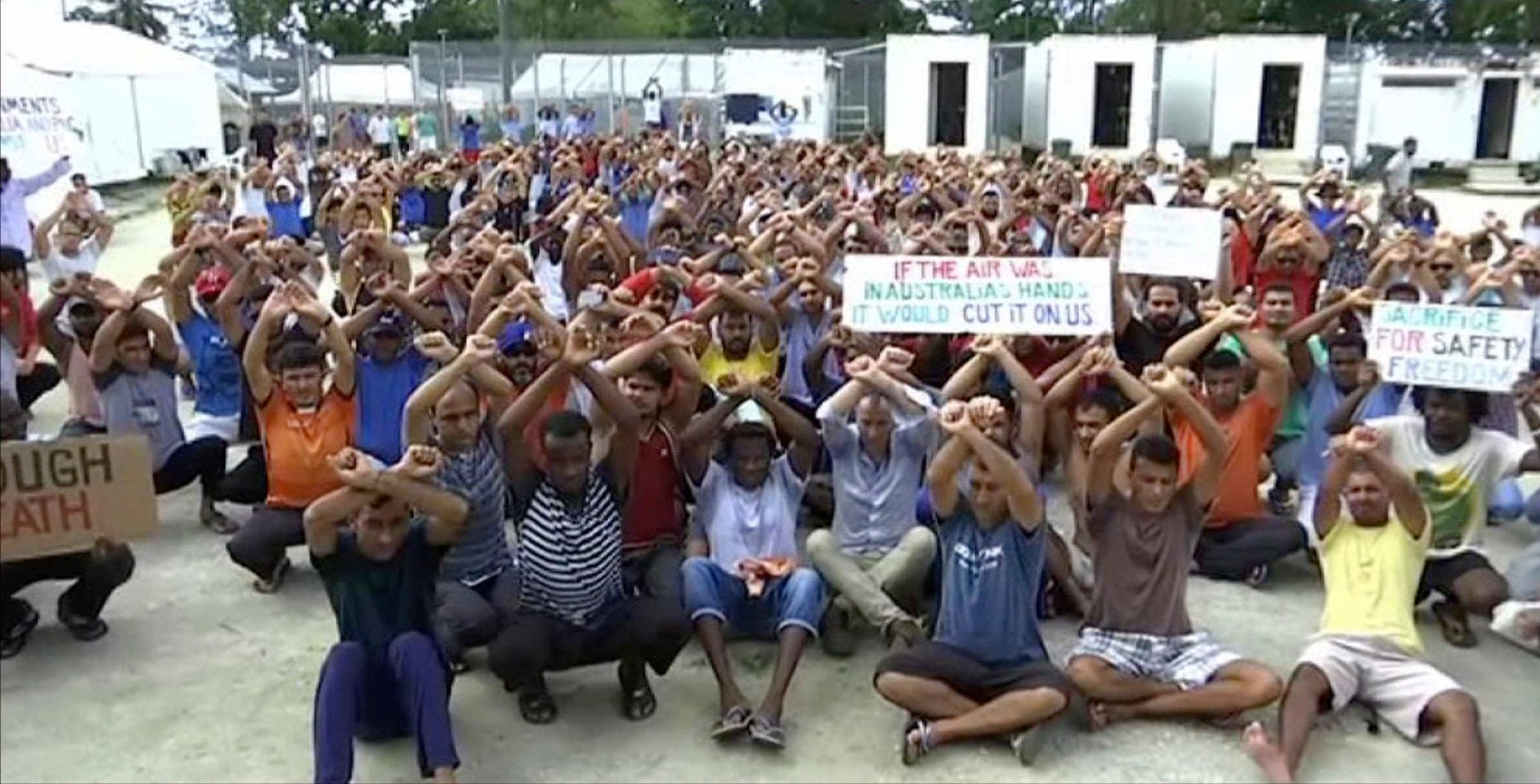To stop Italy’s xenophobic treatment of refugees, the UN should first hold Australia accountable
Since Italy’s government—run by a Five Star Movement-Lega coalition—was inaugurated on June 1, things have changed rather dramatically in the handling of migrants and refugees coming from Libya to Italy.


Since Italy’s government—run by a Five Star Movement-Lega coalition—was inaugurated on June 1, things have changed rather dramatically in the handling of migrants and refugees coming from Libya to Italy.
Matteo Salvini—the vice prime minister, home affairs minister, and de facto leader of the government, though the prime minister is officially Giuseppe Conte—remains very clear: Regardless of the legal or human implications, he is determined to keep his xenophobic campaign promises, and enforce a hard line against migrants.
In the past few months, Italy’s harbors have been closed to rescue boats, and search-and-rescue programs have been ostracized. The government has hailed these developments as remarkable successes. About 70% of Italians support its actions when it comes to immigration. Migrants (including minors) have drowned in plain sight (link in Italian) and languished for days in rescue boats while battling serious health conditions. Some have been sent back to Libya to face inhumane conditions, including concentration camps and possibly being sold as slaves.
The UN High Commissioner for Human Rights has launched an investigation into Italy’s treatment of migrants and refugees, leading Salvini to threaten defunding of the United Nations.
Italy’s government is toying with serious violations of both international and Italian law. Salvini and some of his compatriots are under investigation for instigating racial hatred, but they haven’t budged; in fact, one of the prosecutors who investigated Salvini has been sued by his allies. Indeed Salvini has used the lawsuits against him as an opportunity to reiterate (employing the Trumpian motto “Italians first”) that he intends to “defend Italy from the invasion” of foreigners and would proudly face an investigation for that.
No way
Salvini’s approach, he has declared, has a clear source of inspiration. It’s Australia’s “No way” policy, which involves intercepting migrant vessels heading to Australia and deporting their passengers to offshore detention centers on remote Pacific islands.
The Australian government has been transporting refugee seekers to such facilities since 2001. Two centers on Nauru and Manus islands have been operating as effective concentration camps for hundreds of asylum seekers since 2012. Breaking international treaties it’s ratified, Australia refuses to relocate such individuals within its borders.
“Australia’s offshore processing policies have brought misery and suffering to 1,600 people who remain trapped on remote Pacific islands, the vast majority of whom have been found to be refugees,” says Elaine Pearson, Human Rights Watch’s Australia director. Investigations have found cruelty and human-rights violations to be commonplace in the detention centers, she notes.
Australia’s policies, which its authorities like to call “harsh but effective,” have led to attempted suicide by children as young as 10, and adults killing themselves out of desperation.
The acts of keeping migrants in captivity and refusing asylum seekers entrance into a country—as Australia has been doing, and Italy aspires to do—are not compatible with the 1951 Convention Relating on the Status of Refugees, a UN treaty that builds upon the 14th article of the Universal Declaration of Human Rights, which establishes the right to seek asylum from persecution in other countries.
Yet Australia, which Pearson calls “a world leader in how to be cruel to refugees,” has been able to get away with its behavior with no concrete repercussions, even when documents emerged showing horrific abuse conducted in its imprisonment camps.
To be sure, the UN agencies for refugees and human rights have repeatedly condemned Australia’s policy, calling it everything from “immensely harmful” to “torture.” Such alarms, however, have not resulted in sanctions—either multilateral or bilateral. The US won’t allow the UN Security Council, where as a permanent member it wields veto power, to impose sanctions against its close ally.
In short, the country’s actions have been tolerated without much ado—positioning Australia, like other Western countries, essentially above the (international) law. And if Australia has been getting away with it for years, why can’t Italy, or Hungary, or others?
“Instead of blindly following Australia’s harmful approach, countries should be calling Australia out,” says Pearson.
An occasion to do so will arise in the days ahead when the UN General Assembly discusses, among other issues, the treatment and handling of refugees.